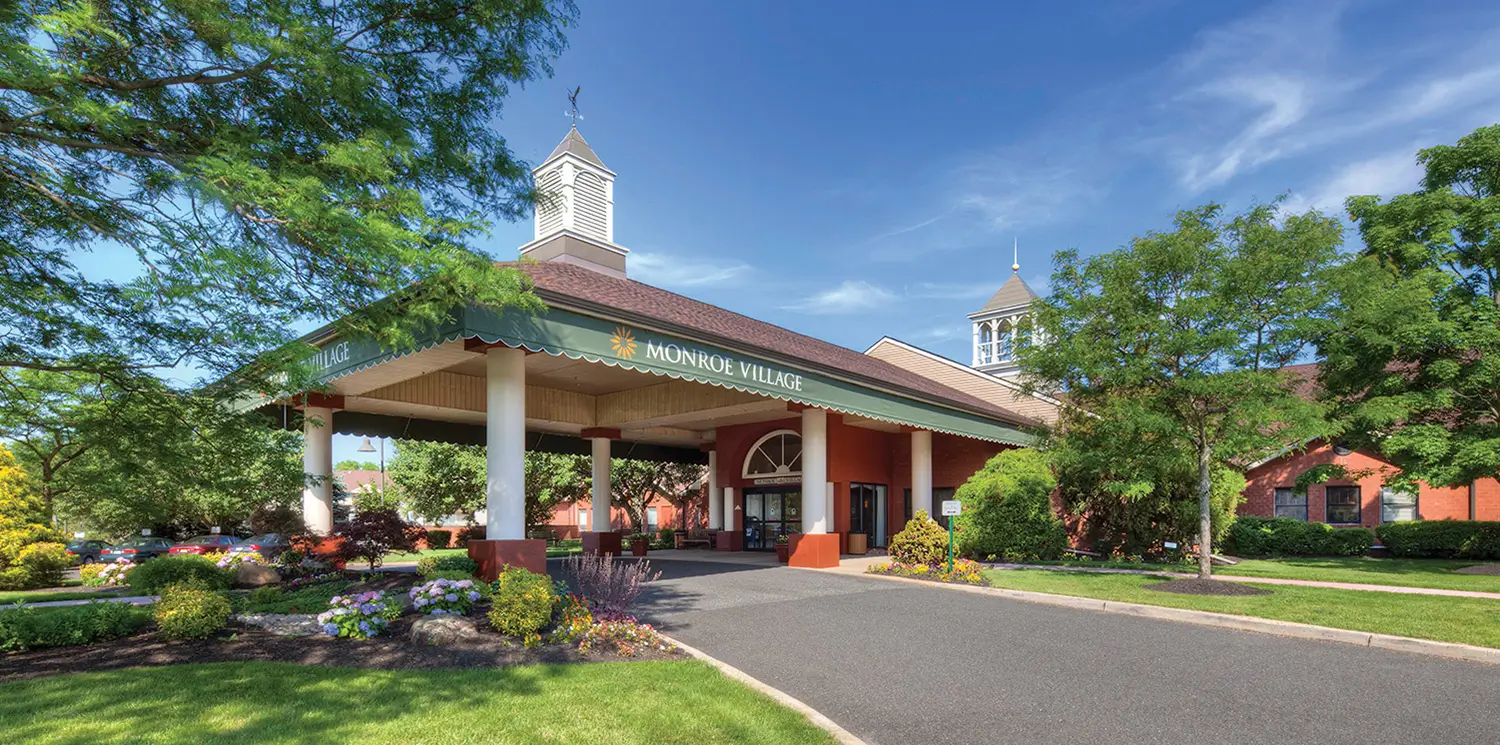What Is a Lifecare Contract?
October 30, 2021
More than a few seniors, and seniors-to-be, have lost sleep worrying about how they’ll pay for rising healthcare costs as they age. A study by West Health and Gallup found that 45% of Americans admit to being afraid they’ll have to file for bankruptcy protection if faced with a major health crisis.
Unfortunately, Medicare will not be the safety net. It will cover some but not all your costs. In fact, you can count on about 15% of your annual retirement expenses going to health-care-related expenses, including your Medicare premiums and out-of-pocket expenses.
There is a viable solution that more retirees are choosing––that’s moving to a Life Plan Community and entering into a Lifecare contract.
What Is a Life Plan Community?
As a resident in a Life Plan Community (also known as a Continuing Care Retirement Community or CCRC) like Monroe Village, you’ll enjoy independent living at its best, in a maintenance-free apartment set in a community featuring resort-style amenities and a robust social calendar.
If the time ever comes when you need higher levels of care and assistance, you won’t have to move––you’ll have access to quality health care right in Monroe Village. This can include assistance with activities of daily living to help you maintain your independence to person-centered skilled nursing care and innovative senior rehabilitation services.
What is Lifecare and How Does It Work?
With a Lifecare contract in place, you have the security of knowing your present and future healthcare needs will be covered and costs will be predictable. Lifecare guarantees the care you need, for as long as you need it, at rates that are the same or very close to what you pay in independent living—and far less than you’d pay on the open market.
You can also count on high-quality care, all available on the same community campus—every level of care is available when you need it from an expert staff of medical professionals, all provided at affordable, “no surprises” costs that are well below market rates.
The topline benefits and features of a Lifecare contract are:
- Guaranteed residence for life—You pay a one-time entrance fee and a monthly service fee. This guarantees you’ll have a residence at the community for life (even if you no longer have the resources to pay for it).
- Continuum of care—You have access to a full continuum of care at predictable, stable rates for the rest of your life. You’ll never again have to deal with skyrocketing medical costs on the open market.
- Estate security—The contract protects your estate thanks to predictable care costs. If you need or want to move, you receive a partial refund of your entrance fee. Plus, your entrance fee may be tax deductible; consult your tax advisor for details.
In addition to your residence, your contract covers long-term care needs including assistance with the activities daily living (meal prep & eating, dressing/grooming, medication assistance, mobility assistance, bathing, advanced assistance with dementia/Alzheimer’s needs).
Typically, a Lifecare contract will not cover doctor visits, diagnostic testing, X-rays, medical equipment, medications, physical/occupational/speech therapies,or mental health services.
How Do Life Plan Communities Benefit Residents?
As a resident of a Life Plan Community such as Monroe Village in Monroe, New Jersey, you’ll enjoy an active, independent lifestyle with top-notch amenities and a robust social calendar. Plus, you’ll have your choice of spacious floor plans, so you can create a beautiful apartment and live life your way.
Entrance Fees & Your Taxes
According to current tax laws, some of your entrance fee — and some of your monthly service fee — may be deductible as a medical expense. Generally, regardless of which type of contract you choose, deductions are available. This is true even if you don’t receive higher levels of health care. Because tax deductions change frequently, talk with your tax professional.
Understanding the Types of Senior Living Contracts
There are three types of contracts available in today’s Life Plan Communities: Type A Lifecare, Type B Modified Plan, and Type C Fee-for-Service. At Monroe Village, we offer multiple contract types with traditional and refundable options, including Lifecare.
All three senior living contracts cover a wide variety of services (such as maintenance, linen service, housekeeping, dining) and amenities (such as fitness area, pool, classes, and clubs, and socialization activities). They also give you access to higher levels of onsite care, as described earlier in this blog post. But there are key differences in these three types of contracts.
Type A Contract–Lifecare
Topline benefits and features include:
Lifetime Coverage—You pay a one-time entrance fee and a monthly service fee. This ensures you’ll have a residence at this community for life, even if you outlive your resources and can no longer afford the full monthly fee. And if you or your spouse needs a higher level of care, you’ll often still just pay one monthly fee — plus the cost for any additional meals for the person who has moved to assisted living, skilled nursing, or memory care.
Continuum of Care––You have access to a full continuum of care at predictable, stable rates for the rest of your life. You’ll never again have to deal with skyrocketing medical costs on the open market.
Typically, a Lifecare contract won’t cover doctor visits; diagnostic testing; X-rays; medical equipment; medications; physical, occupational and speech therapies; or mental health services. These services generally fall under what is covered in part by your Medicare plan. Depending on the type of plan you have, the rest is generally paid out of pocket.
Type B Contract – Modified Plan Life Care (also called Modified CCRC or Modified Agreement)
This type of contract includes housing, services, and amenities, with assisted living, memory care/support, and skilled nursing care typically provided in one of two ways:
1) A limited number of free days included as part of the entrance fee, with additional care billed at per diem market rate
2) An ongoing, minimally discounted rate. Health care services may be delivered onsite or offsite, and two monthly service fees may be incurred if couples require different levels of care.
Type C Contract––Fee-for-Service
With a fee-for-service contract, housing, services, and amenities are provided under a residence agreement. Access to long-term care, as needed, is typically guaranteed, but is charged at fee-for-service market rates. If the resident at some point requires care on a short-term basis, to maintain their independent living residence, that resident would be required to pay the monthly service fee on the independent living residence, plus the costs of housing and health care received in the assisted living, memory care, or skilled nursing residence.
The Best Move You Can Make for Peace of Mind and a Great Life
Monroe Village is a wonderful community for so many reasons, but peace of mind is definitely high on the list! Knowing that quality health care will always be available to you right on campus is invaluable.
If you’d like to learn more about Lifecare and how it can help safeguard your finances by giving you predictable costs, we invite you to contact us today. We look forward to meeting you!




